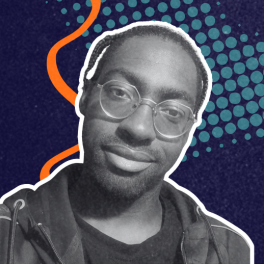
Jessica is a VoiceBox Content Creator and Ambassador from the UK. She is passionate about mental health advocacy. We've spent some time chatting with her about her personal experiences with mental health struggles and the advice she has for others. You can check out her published VoiceBox pieces here.
Hey Jessica, Thanks for agreeing to talk to us today! Can you start by telling us a little bit about yourself?
Hi, I’m a young person who has long-term mental health issues, autism and a developmental chromosome disorder. Aside from my diagnoses, I am very creative and passionate about raising awareness around mental health.
Can you tell us a bit about your journey with your mental health?
Ok, so my journey with mental health is quite long, but it began when I was around 12-13. I developed anxiety at the time due to being bullied, family members passing, and my mum being diagnosed with cancer. As I grew, my anxiety developed, and at around the age of 15 was when my mental health reached its lowest point soon after I was admitted inpatient in a psychiatric unit. This was an extremely difficult time, and when I look back, I recognise that during this, my sense of self had diminished.
After being inpatient I was pulled out of school. It was nearing the end of my GSCE’s, and so I revised on my own, and went in for the exams.
However it was during this time, I began to become afraid of the outside world. And I developed agoraphobia.
As I aged my mental health slipped back and forth. Eventually I planned to attend sixth form with support. But on that day, I broke down. Fortunately, on the same day I heard a advertisement on the radio about a open day at a local college with a disability and support provision. I also discovered that the open day was on the same day. I soon joined the college on a independence course, and after a couple of years went into mainstream to do graphic design.
Now I’m 22 and at a better place. I have my ups and my downs, but I don’t usually become depressed. I do still struggle with agoraphobia and anxiety, but I’m pushing myself out of my comfort zone every day.
How do these mental health issues impact your day-to-day life?
Well, my anxiety is what has the most impact on my life. I have self-worth issues and struggles with my body, but anxiety is usually severe for me. I only leave the house with close family members, and I can’t access things most people can. I can’t go to the shop, go for a walk alone, or access public transport.
Aside from these things, I am very anxious in social situations such as meeting new people and going to any extended family gatherings. Anxiety is constricting for me.
Do you have any coping strategies you’d like to share?
I recommend many DBT (Dialectical behavioural therapy) skills to those I know.
Especially the DBT STOP skill, which is great for when you are in a highly anxious moment or when you are overthinking,
S is for Stop - which is about stopping and not reacting to the moment.
T is for Take a step back - this is about literally taking a step away from the situation, or mentally taking a step back. To do this in public you could for example head to the toilets, to remove yourself from a situation and to calm down.
O is for Observe - Observing your thoughts, emotions and environment whilst also being nonjudgemental.
P is for Proceed mindfully - Often in DBT, we think of how we can handle a situation effectively. In other words what action do we take next which is mindful, and effective for our long term goals.
DBT has lots of great skills, which I recommend, but other than DBT, I think it’s important to have a plan of action for when your mental health is bad. This is often called a crisis plan, but I also think you could adapt it for different situations and circumstances, with coping strategies listed for them.
Another way I am learning to cope is by being more mindful of the way I’m speaking internally and externally to myself. It’s about catching the mental health cycles before they spiral further.
In CBT this is the same as understanding the cycle of thoughts, feelings and behaviours. But I use it as being more mindful and aware of what I’m thinking, why I’m getting triggered and where the emotion is coming from.
Sometimes we don’t know why we’re feeling the way we do, and thats ok. Emotions never arise from nothing, there is always a cause, and this can be as hidden as a automatic thought in our mind, which we don’t realise is there.
Mindfulness is a skill. And becoming mindful of thoughts, triggers, emotions, actions and repetitive cycles can help us to then turn them around with other techniques such as reframing a thought, or thinking of a different perspective.
What was it like going through school as an autistic young person?
Hard. Throughout lower and middle school, I was bullied, which affected my experience of school. I used to wander around the playground in lower school, singing to myself and talking to imaginary friends. It was better in lower school because I didn’t stand out as much, but in middle school, I did. I think this is because social situations have become the norm. I remember not knowing what to do in cookery lessons for example. The teacher would give us a step-by-step list of instructions, but I couldn’t understand them, they confused me, and so I would copy what my peers were doing. If they went to the oven, then I would go to the oven. I now recognise this as masking. Friendship groups were a major struggle for me, and for most of my time at school I was alone. I remember feeling a lot of fear in school, for things like eating in front of others, being picked on in class, reading out loud in lessons or even saying ‘here’ as an answer for the register every day. Raising my voice in any way, shape or form made me terrified. At that point I was ever focused on disappearing, not standing out.
Transitioning from child to adult mental health services can be a big change! What was your experience like?
I was promised transition support from child mental health services, told I would see a transition support worker once every week, and gradually integrate into adult mental health. This didn’t happen. The change from child to adult mental health services was very hard, and adult mental health services didn’t see me for many weeks when I was first under their services. This was a massive change from seeing a therapist once every week. However turns out that they didn’t integrate all my records properly, leaving them with little information about me and my history.
You mentioned you participated in DBT therapy groups as a young person. What was that like? Did you learn anything from them?
Yes, I did. I attended a virtual DBT therapy group, which was nerve wracking but very helpful. I have learnt quite a lot from DBT but I think the most important thing I learnt is that I’m not alone.
You are on an Education, Health and Care Plan. Can you explain what this is and how it has helped you?
Ok so an EHCP or education health and care plan is a legal document/plan for young people aged 0-25. This document sets out the child/young person’s special educational needs, disabilities and what support they need from the council, their school/college/sixth form. My EHCP has helped me majorly. I received a 1-1 teaching assistant in college for several years. It has also provided me with support from social care services. Having a EHCP has propelled many of my provisions to actually happen. And for me it has led to more understanding of my access and support needs.
What are some of the misconceptions that you face?
People don’t often understand agoraphobia, and they get confused as to why I can’t go outside. They also often can’t comprehend how severe my mental health has been in the past. I think that more awareness needs to be shared of ways to support someone who is in a crisis state. As I’ve been told to do many coping skills which barely touch the surface. Skills such as DBT crisis and emotional regulation skills need to be taught.
What lessons or advice would you like to share with others who may be facing some of the same mental health barriers?
Depression is at times like seeing through sunglasses. You think of what you see to be your reality, but your perspective is not what every one sees. I think one piece of advice is to understand that reality is subjective, people think things differently, and they see things differently. Did you know that humans actually have blind spots in their sight, these are spots where we can’t actually see, but the brain fills them in with what we think we should see.
There are so many examples of the brain filling in these gaps, in both memory and in perspective. Depression does the same, it defines life through your one perspective. Please don’t believe what you think is the definitive truth. Understand that there are different perspectives on everything. What you’re thinking and believing is not what another is thinking and feeling.
I used to take my thoughts as law, I would believe them wholeheartedly and clash with anyone who believed otherwise. I would say ‘life is just work and death’ but what I didn’t realise was that is one perspective, but it is not the truth.
Additionally, I would say to speak up. For so long, I was afraid of speaking my truth, what I wanted to change. But your voice is important, and it matters. Please don’t suppress your expression.
Finally I want to end this on the note of some advice in terms of perspective. When you are being judgemental towards yourself, ask ‘would I say these things to my younger self? Or ‘a young family member’.
Support Young Creators Like This One!
VoiceBox is a platform built to help young creators thrive. We believe that sharing thoughtful, high-quality content deserves pay even if your audience isn’t 100,000 strong.
But here's the thing: while you enjoy free content, our young contributors from all over the world are fairly compensated for their work. To keep this up, we need your help.
Will you join our community of supporters?
Your donation, no matter the size, makes a real difference. It allows us to:
- Compensate young creators for their work
- Maintain a safe, ad-free environment
- Continue providing high-quality, free content, including research reports and insights into youth issues
- Highlight youth voices and unique perspectives from cultures around the world
Your generosity fuels our mission! By supporting VoiceBox, you are directly supporting young people and showing that you value what they have to say.





